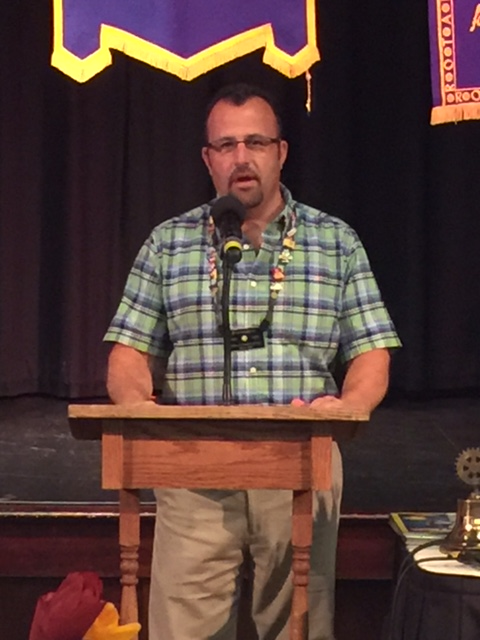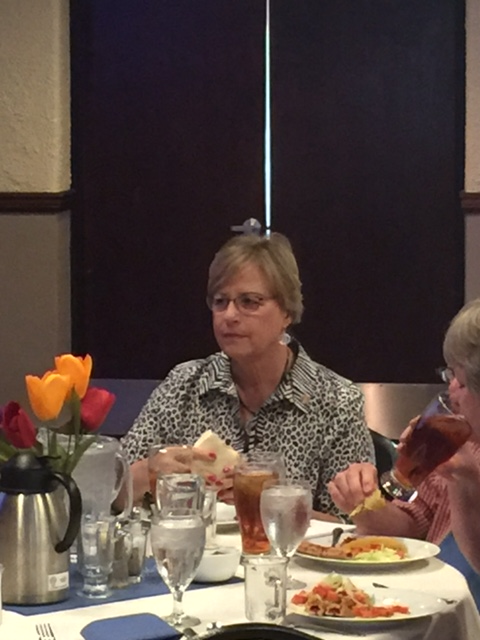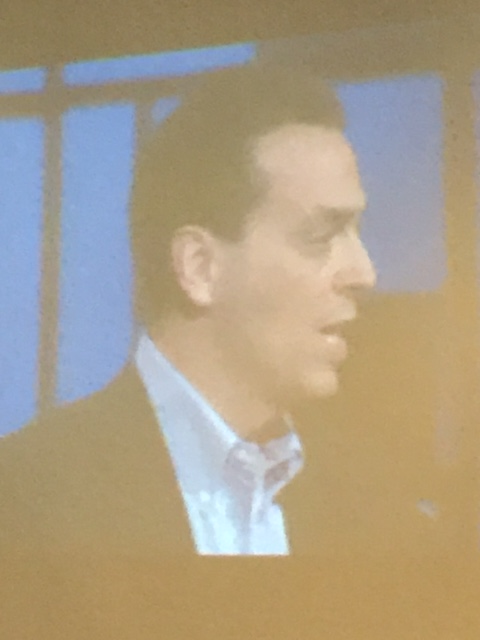North Notes
Spokane North Rotary Club Bulletin
September 11, 2017
Briefs:
Happy 90th!: Evelyn Hanson of Spokane, mother of Past-President Nancy Hanson, recently celebrated her 90th birthday. In her honor, Nancy donated $90 to the club kitty. Congratulations to both of you!
More congrats!: It was a dog-(and cat)-gone big award for Steve Boharski, who next month will be honored as Veterinarian of the Year in the Best of Spokane edition of Spokane and Coeur d’Alene Living magazine. Balloting concluded July 15 in the 13th annual award. Steve and Garland Animal Clinic was the silver winner in 2016.
Membership and fellowship stressed
 Some Rotary District 5080 clubs are doing well; others are struggling, said Area 7 Assistant Governor John Guarisco.
Some Rotary District 5080 clubs are doing well; others are struggling, said Area 7 Assistant Governor John Guarisco.
“Some clubs are growing, but others are not, even some big clubs,” said Guarisco, who visited the club Sept. 11, along with Karol Price, an area district governor. John is with the newly combined Spokane Valley and East club; Karol is with Spokane Aurora Northwest.
“Bring three new prospective members this Rotary year to a club, or even to some coffee,” Guarisco said. Members should be invited even if your own club meeting doesn’t fit this schedule, he said, adding, “50 percent people who left the club said the time doesn’t fit their schedules.”
“It’s not ‘my club;’ it’s ‘our district,’” he said.
He added that “membership and fellowship” are the keys for District success.
Noting that Spokane-North is still seeking a president-elect for this Rotary year, Guarisco said “the president (position) is a club effort. You are not doing this alone.”
He also asked members to consider the Rotary Leadership Institute, Dec. 9 at the Mirabeau Park Hotel and to save the date for the April 7 Rotary District Spring Assembly.
District Gov. Jerri Anderson of Sandpoint will meet the club board and with the club lunch Oct. 1.
Are the old rewards over-rated?
“For many tasks, typical rewards often don’t work – and they may work against you,” says business author Daniel H. Pink.
 Pink talked about candles, carrots and sticks in a video Ted Talk session aired at the Sept. 11 club meeting. Pink is co-executive producer of “Crowd Control” a National Geographic Channel series on human behavior. He also discusses the “Hidden Brain,” on PBS and has written several best-selling books on business, work and behavior.
Pink talked about candles, carrots and sticks in a video Ted Talk session aired at the Sept. 11 club meeting. Pink is co-executive producer of “Crowd Control” a National Geographic Channel series on human behavior. He also discusses the “Hidden Brain,” on PBS and has written several best-selling books on business, work and behavior. Pink talked about the conundrum from the 1940s about how to light a candle without dripping wax on a tabletop, using a box-top and thumb-tack as the tools. While some standard solutions failed, the idea was to tack the tabletop to the wall and place the candle in the box.
Pink’s point it that finding unusual methods in many jobs or businesses takes original thinking. “The key is getting over functional incentive-ness,” he said.
“While mechanical skills work (in typical reward systems), even rudimentary thinking skills often show that standard rewards work in reverse,” Pink said, adding, “the highest rewards (in three groups tested) did the worst of all.”
“Carrot-and-stick approaches could be dangerous,” he said. “The sweeter carrots need a new approach.”
He says free-work time and fewer meetings may yield better results than a more-dated management/reward system.
Pink talked about Atlassian, a fast-growing software company, which gives staff for company time to “use anything you can to get the work done, just not their own usual tasks.” The one-day free time is called “FedEx days,” Pink said, meaning the work must be done the next day, on schedule. (Atlassian, founded in 2002 at the University of New South Wales in Sydney, now has 1,760 employees, with branches in five countries and has 60,000 customers. U.S. offices include Austin, San Francisco and Mountain Lake, Calif.)
Pink said Google staffers “also provide 20 percent of their time to work on their own.”
He also talked about EnCarta, which developed an on-line encyclopedia using standard methods, but lost to Wikipedia, using more creative tool sets.
“That was the Ali-Frazier of motivation,” Pink said.
The bulletin producers:
Bulletin editors: Chuck Rehberg and Sandy Fink
Photo: Sandy Fink
Program coordinator: Brad Stark
